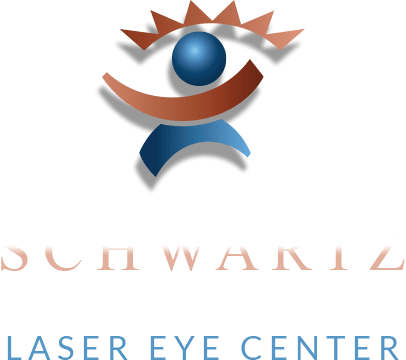Understanding Macular Degeneration
Posted on January 17, 2021 by Schwartz Laser - Macular Degeneration

Macular degeneration is the leading cause of blindness for Americans 65 and older. As an age-related disease, it develops slowly, often as a result of years of poor nutritional or lifestyle choices. Below, experienced ophthalmologist Dr. Jay Schwartz of Phoenix-area Schwartz Laser Eye Center discusses ways to lower your risk for this condition, and how early detection is your best chance for preserving sight.
Changes in Vision
The macula is the part of the retina that focuses images before they are transmitted along the optic nerve to the brain. When this region of the eye begins to deteriorate, a person may notice a sudden change in vision, including fuzziness, distortions, blind spots, blurring, reduced contrast and difficulty reading. He or she may struggle to recognize fine details, colors and even faces.
There is a genetic component to macular degeneration, including eye color (darker pigment seems to correlate with reduced risk), but lifestyle also plays a large role. Obese and sedentary individuals are more likely to develop macular degeneration, as are persons with untreated high blood pressure. And smoking is a major risk factor.
Early Detection
There is currently no cure for macular degeneration, but regular eye exams can help identify the disease early so that damage can be minimized. Diet is one treatment option that may help slow its progression. Omega-3 fatty acids, antioxidants and zinc are believed to offer some protective benefits.
Diet is key to overall vision health as well. Vitamin A, B vitamins, iron and thiamine are all important to maintaining healthy eyes and clear vision. Non-starchy plant foods, such as fruits and dark, leafy vegetables, are ideal sources of vitamin B. This eye-healthy vitamin can also be found in whole grains, eggs and dairy, meat, nuts, seeds and legumes.
If you are missing out on many of these nutrients, a daily multivitamin may be a good idea. Lack of nutrients can lead to other vision problems, such as cataracts. And a poor diet has even wider health implications, as it is linked with development of diabetes, heart disease, stroke and certain cancers.
If you would like to learn more about macular degeneration, we invite you to schedule a personal consultation with skilled ophthalmologist Dr. Jay Schwartz at his Phoenix, Glendale or Scottsdale office by calling or emailing Schwartz Laser Eye Center today.


